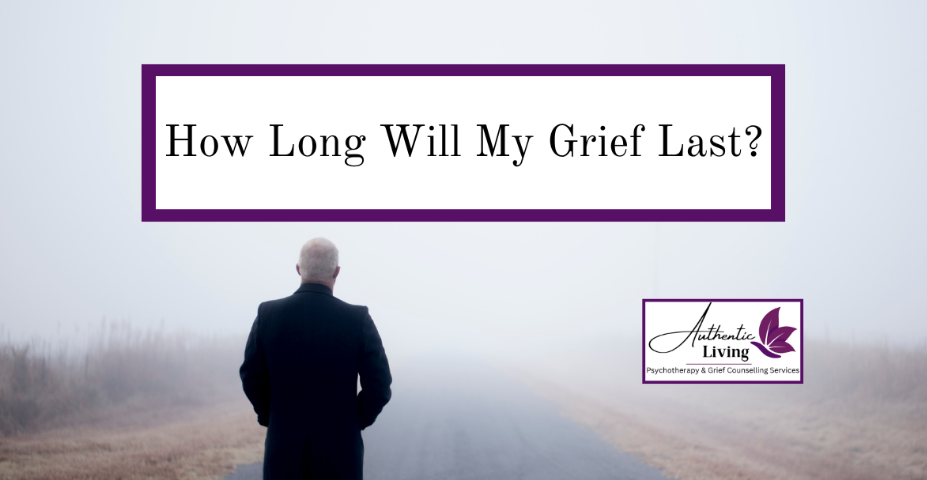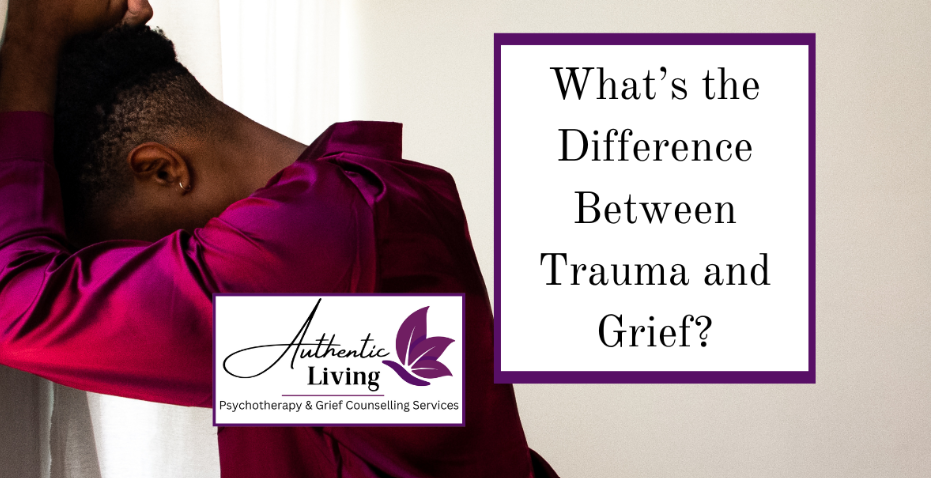How Long Will My Grief Last?
- Aug 10, 2025
- 5 min read
When someone or something important is lost, it’s normal to ask: how long will this pain last? The short answer is: there’s no single timeline. Grief is different for everyone. Some people feel a big shift within months. For others, the ache is still strong years later. What matters most is how the grief affects your life, not how long it lasts.
Below we’ll explain why grief lasts longer for some people, common patterns people experience, practical ways to cope at different stages, when to get extra support, and how therapy can help you move forward without forgetting the person you love.

The short answer: no fixed timeline
There is no “one-size-fits-all” length of grief. Grief depends on many things: who you lost, how they died, the supports you have, your past experiences, and your personality. For many people the intensity eases over time. For some it stays strong but changes shape. For a few, grief becomes very prolonged and needs professional care. All of that can be normal.
Why grief lasts longer for some people
These factors can make grief deeper or longer:
How close you were: losing a partner or a child often brings intense, long-lasting grief.
How the loss happened: sudden, violent, or traumatic deaths often leave both grief and shock.
Multiple losses: losing several things around the same time (job, home, health) can pile up.
Past trauma or mental health: earlier trauma or depression can make grief harder to process.
Your support system: people with few friends or little help often struggle more.
Cultural and family beliefs: some cultures have strong mourning rituals that help; others leave people isolated.
Practical realities: having to manage money, legal tasks, or caregiving while grieving can prolong stress.
Remember: none of these mean you’re failing. They just explain why your grief may be complex.
Common patterns people notice (but these are only examples)
Everyone’s path is unique, but many people notice similar rough phases. These are not rules, they’re gentle guides.
First days and weeks: shock, numbness, disbelief. You might feel like you’re in a fog or moving on autopilot.
First months: intense emotions - deep sadness, anger, guilt, or relief. Sleep and appetite can change. Daily tasks can feel hard.
Around anniversaries and milestones: birthdays, holidays, and the anniversary of the death often bring fresh waves of grief, even years later.
Later months to years: for many, the sharpest pain softens. Memories can bring both tears and comfort. You begin to imagine a life where the person isn’t here, but they remain part of your story.
Long-term: grief often becomes a quieter presence. It may never fully disappear, but many people find ways to live with it and find meaning again.
Some people never feel a steady decline in pain. If grief stays intense and stops you from living your life for many months, you may need extra support.
What “getting better” usually looks like
Getting better doesn’t mean forgetting or “moving on” like nothing happened. It means the grief becomes less all-consuming. You’ll still miss the person, but you can think about them without being overwhelmed. You find routines again. You begin to make plans that feel possible.
Small signs of progress are real progress: sleeping a full night, being able to go out with friends, or telling a memory without breaking down. Celebrate those wins.
Practical coping steps: immediate to long-term
Right after a loss (first days–weeks)
Say yes to practical help. Let people bring meals, do laundry, or run errands.
Take care of basic needs: try to eat, rest, and drink water. Grief is draining.
Allow numbness. It’s okay if you can’t feel everything right away.
Short-term (weeks–months)
Create small rituals: light a candle, sort photos, or make a playlist of songs that matter.
Talk about the person. Sharing stories keeps their memory alive and eases loneliness.
Move your body a little: short walks or gentle stretches can help regulate mood.
Longer-term (months–years)
Build small routines again: a daily walk, regular meals, or a bedtime ritual.
Try creative expression: journaling, drawing, or making a memory book.
Mark anniversaries intentionally: plan to light a candle or visit a place that mattered to them.
Consider a support group where others who’ve lost someone meet and share.
When grief and trauma overlap
If the death was sudden, violent, or shocking, trauma symptoms may appear: flashbacks, nightmares, panic attacks, or feeling on edge. If this is true for you, it’s important to treat both grief and trauma. Grounding exercises and trauma-informed therapy can help you feel safe enough to grieve.

When to seek professional help
Reach out for extra support if you notice any of these:
Your grief feels completely overwhelming for months and you can’t do day-to-day tasks.
You have constant thoughts of harming yourself or you feel like you might act on them. (If so, contact emergency services or a crisis line right away.)
You’ve stopped caring for yourself entirely, or you can’t work or care for children for a long time.
You have intense, long-lasting symptoms that don’t ease with support from friends or family.
A grief-trained therapist can help you find safety, process painful memories, and build a life where the loss matters but doesn’t control every day.
How therapy can help
Therapy gives you a safe place to tell your story. A therapist can help you:
Understand your reactions and normalize what you’re feeling.
Learn grounding and coping skills for intense moments.
Process traumatic elements so you can remember your loved one differently.
Build rituals and meaning without pressure to “move on.”
At Authentic Living London, our therapists are trained in grief support and many have lived experience of loss. We offer in-person sessions in London, Ontario, and virtual therapy across Ontario.
How to support someone who’s grieving
If you want to help a grieving friend or family member:
Do:
Listen more than you talk. Simple statements like “I’m here” are powerful.
Offer concrete help: bring a meal, do chores, or run an errand.
Ask about the person who died - sharing memories is healing.
Don’t:
Say “You should be over it by now” or “They’re in a better place.” These can feel dismissive.
Pressure someone to “get back to normal.” Grief takes time.
Common myths, and what’s true
Myth: “Grief should last X months.” Truth: There’s no set calendar for grief.
Myth: “If you loved them, you’d grieve more.” Truth: People show grief differently, intensity isn’t a measure of love.
Myth: “If I stop crying, I’m healed.” Truth: Healing shows up in many ways. Sometimes grief becomes quieter, not gone.
Final note: you don’t have to do this alone
Grief is heavy and lonely at times, but it does not mean you are broken. It means you loved. If your grief feels too big to carry by yourself, reach out. We are here to sit with you, to offer tools, and to help you find a life that honours your loss while letting you live fully again.
If you’d like compassionate, skilled support from a grief-trained therapist, book a session with Authentic Living London. We offer both in-person sessions in London, Ontario, and virtual appointments across the province. You don’t have to rush; we’ll walk beside you at your pace.









Comments